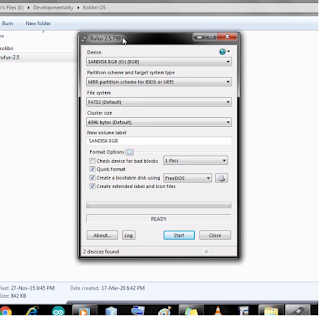What is Hacking ?
I have been planning to blog on this topic since I saw a
movie in which a Hacker hacks a computer for stealing information. Speaking of
which, many of you would have seen something like this in a movie:
The Hacker, alone, in
a place completely isolated from it’s surroundings. He sits in front of a huge
computer screen which is the only source of light in the dark room and starts
typing furiously. A hundred windows keep opening and closing. The Hacker mutters
something in an indecipherable language under his breath. Suddenly, a window
pops open, saying “HACKING…”, the status bar starts ascending from 0%. The
Hacker catches his breath. The status bar reaches 100%. It says “ACCESS
GRANTED”. The Hacker stands up and cheers.
What you have witnessed is a
drama called “HOLLYWOOD HACKING”. This is far from the truth.
What is Hacking?
Actually, a “Hack” is a
creative solution to a problem. You should know that if you watch “Life Hacks”
on YouTube. But here, we refer it to the process of finding loopholes and
vulnerabilities in a system or database to enter into it and steal data, hold
it for ransom, or simply cause mischief.
How is Hacking done?
For that, let’s take a real
world example.
There was a new bank called
BASICBANK. It had managed to draw a lot of customers, but it did not have a
security system tight enough. All it had was a single security officer and two
CCTV cameras. One day, a Hacker came to this bank. He saw that it indeed had
poor security. He decided to take advantage of it. On his way out, he noted
that the cameras were recording to a PC. The Hacker, being a professional, knew
that there was a hack (also known as ‘exploit’) to access the software without
the password, but it was repaired (or patched) in the newer versions. But, he
noted that this software was running a version that was there before the
patched version came out. He used the vulnerability to his advantage. He bribed
the security, got into the bank, stole the money, and hacked into the CCTVs and
deleted the proof of his visit.
Now, let me get this clear,
this is only the very basic bottom-level example. No one will be foolish enough
to put such a little security in a bank (but it can happen). Actual Hacking is
even harder, involving more steps and more wits.
ENTERING INTO A COMPUTER OR
DATABASE WITHOUT PERMISSION IS ILLEGAL.
Different types of Hackers:
There are basically 3
different types of Hackers:
Black Hat Hackers
They are the hackers we are most familiar with. They
hack computers and databases for their personal profit. This is ILLEGAL.
White Hat Hackers
White Hat Hackers (or Penetration testers) are
employed by companies to test the integrity and security of their software.
This is perfectly legal, and they get paid for it
Grey Hat Hackers
They hack computers and databases for a good cause (like
Robin Hood). But remember, this is NOT legal.
How to prevent Hacking?
There is no definite way to prevent hacking. Every system
has vulnerabilities. But that doesn’t mean that every hacker knows every
vulnerability in every software. Whenever a vulnerability is spotted, an update
is released (these updates are sometimes called “Software Patches”). Our best
shot is to keep updating software in order to rid those vulnerabilities. As we
talked about in that example of BASICBANK, if they had updated their CCTV
software, they would have had proof against the Hacker who burgled the bank.
Also, keep a good Antivirus software, since viruses are
sometimes created by Hackers to steal data.
Well, that’s all.
Thanks for paying a visit
here.
Subscribe for future posts.
Any doubts, feel free to drop
a comment, I always read them.
Or, email me here.
Cheers,
Nikhil





Comments
Post a Comment